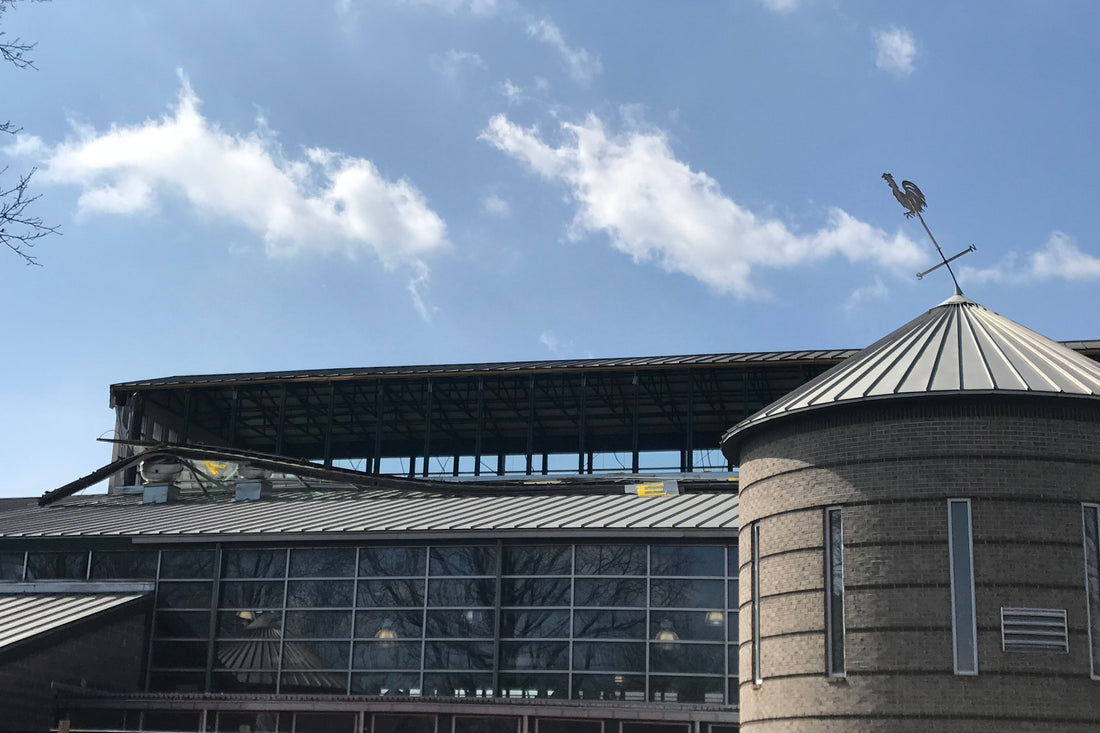
Remembering the morning of the 2020 Nashville Tornado
Share
I vividly remember my daughter waking me up around 2 AM on March 3, 2020. She's a light sleeper when it comes to severe weather. While the weather was intense, the tornado threat had already passed by us. Once awake, we had a hard time getting back to sleep, so we turned on the news to see if the storm had caused any damage around Nashville.
It had—we would learn that 10 distinct tornadoes had touched down, causing chaos over more than 100 miles of Middle Tennessee. As we now know, 2020 had a lot of destruction and challenges ahead.

Even though I didn't know it while watching the coverage, Batch would be directly impacted (though in a relatively minor way) by the tornado that left a line of damage from TSU to East Nashville and beyond. I received a text message from the Director of the Nashville Farmers Market where we have operated a retail store since November 2014. She told me that the building was damaged. Windows had blown out above our store and rain poured into our store. Once it was safe to get on the road, I drove into town. I needed to see the damage for myself even though I was not sure what to do next.
The Market had been turned into an emergency shelter. When the building lost electricity, everyone had to be relocated. As folks made their way out of the building and with rain still spilling in, I began to assess the damage.

Sure enough, water had been pouring into our store from above, soaking everything along the wall and leaving puddles in the small stockroom and office. Posters, books, shirts - all ruined. Other items were also done for, now waterlogged and unable to be resold.
As a small business owner, jarring events like this are in the back of your mind, but there are a lot more immediate needs to focus on—you don't necessarily plan for what you'll do if and when disasters might happen. Running the business is filled with what seem likes constant emergencies or urgencies. Planning for really big emergencies fades into the background.

Walking through water with the flashlight on my phone. Bullhorns blaring as the displaced filed onto busses. Eyeballing what would be ok. Worrying about when we might be able to reopen. Calling my co-owner and staff to plan the next few hours.
Back in those days (I'm defining "those days" as the time before COVID-19) our retail store is what kept the entire company afloat between January and September. Until we booked the large corporate orders in the holidays, the retail store and its hundreds of weekly local and tourist customers kept us plowing forward as a business. The daily cash flow went a long way toward keeping vendors and employees paid.
Any length of unexpected closure was dangerous to the health of our business. What would this mean for our cash position and solvency? What options would we have? How bad would this get? While we were moving products around the store, assessing the damage, my mind was racing with questions and very few answers.

As the sun rose, I began to understand how lucky we had it. Just a hundred yards north, businesses were leveled and forced to close permanently. According to WPLN, the tornadoes killed 25 people, destroyed more than 1,600 buildings — including more than 400 homes — and damaged some 2,700 others. We lost just $5,000 of inventory, all of it easily and quickly replaced and all of it paid for by our insurance company. In fact, due to the hard and fast work of our team and the Farmers Market, we were open again by the weekend, fully stocked and repainted.

We took a deep breath and got back to work.
Of course, little did I know that this early morning disaster would be a relatively small challenge compared to the rest of 2020. (Weeks later we would decide to permanently close our store to focus on online and corporate business.) In the moments after this horrific storm, our teamwork and resiliency was on brilliant display.
Resiliency begets resiliency.

